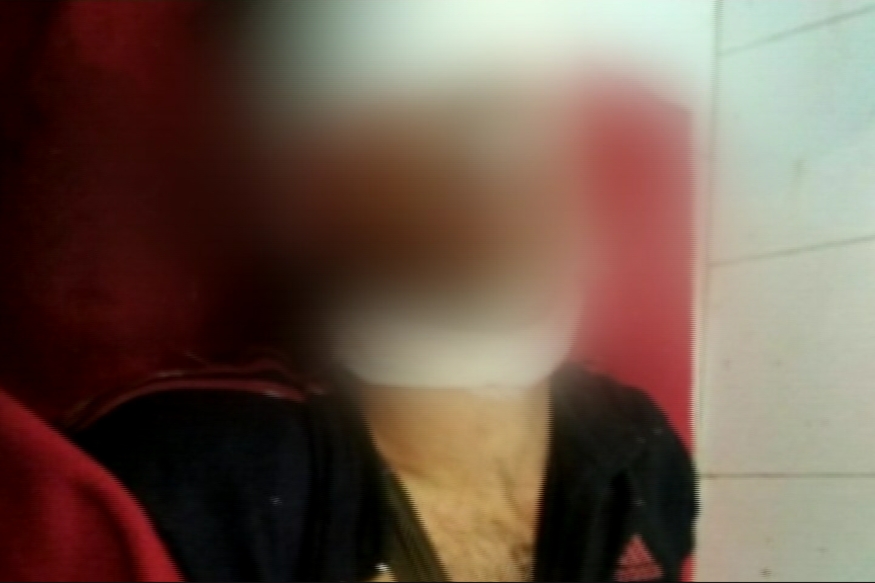



Hey friends, my name is Vidit Biswas and through this reading transcript, I’d like to share my SSB experience. Belonging to an Army background, it has always been my dream to don the uniform, earn those stars on the shoulder and most importantly, follow my father’s footsteps. Army has given me everything. It has been instrumental in helping me become the person I am today. An added motivation has always been there to give something back to the profession which has given me everything. I’ve been dreaming of getting into NDA since 9th class when my best friend’s elder brother got through to NDA. That josh has ever been on the rise since then. I’ve been conferenced out once for NDA-138. And that rejection helped me introspect as to where I went wrong and what all qualities I lack and need to develop, with reference to the OLQs. I gave NDA written exam again in April this year. I had started my preparation for SSB quite early only because my paper had gone well and was confident of clearing it. I started practicing writing stories and positive sentences within the time frame. Improved my handwriting as well as the speed, as these things matter too apart from your ideas.
Finally, the call-up letter came and I had my reporting date on 13 August 2017 at Allahabad. This time I was confident and much more ready to face the SSB. So our screening took place on 14 August and out of the 45 who reported, 36 were screened in. We had a repeaters batch of 9 candidates, including a cadet from the Indian Naval Academy. The next day we had the psychology tests. I completed all the 12 stories in TAT, did 59 words in WAT, 47 situations in SRT and the day rounded off with the SDT. Few candidates had their interviews on that day itself.
Next up were the GTO tasks. The GDs went well. Gave 4-5 valid factual points in the discussions. The topics that we chose were- 1.” In order to counter the Chinese threat, who do you think India should ally with- Japan, USA or Russia?” 2.” Many south Indian colleges have imposed dress restrictions on women. Is it their discriminatory behaviour, influence of western culture or something else?” The next task, GPE went well too. Prioritised the problems with apt solutions. The discussion also went well and Chest no 36 was nominated to give the group plan. Then we had PGT. In PGT, we managed to reach PGT-4 but then got stuck. Helped the group and gave 3-4 ideas, though not satisfactory performance. Next up was GOR. It was an activity full of josh and it was fun. Though I and my group mates still don’t know why we kept “bahubali” as our war cry! After being done with the HGT, we had our lecturette on the same day. I spoke on “AFSPA”. According to me, I delivered a good talk with a bit of history, facts, the present scenario and the future course of action. Next day was the GTO 2 day which started off with the Individual Obstacles. I completed 12 obstacles. My Command task, id say was slightly difficult but I did it in time. And the GTO technique rounded off with the FGT.
Current Affairs questions will be from last 5-7 months (for AFCAT, NDA, CDS, TA)
As I was chest no 35, I had my Interview on the GTO 2 day, after the GTO tasks. It went for around 35-40 mines. The IO asked questions regarding family, studies, and friends. Asked some GK and current affairs questions. He tried to make me uncomfortable by calling me by some words, and abusing, which I hadn’t expected that he’d say out something of this sort! But I didn’t freak out. I was taken aback though but soon maintained composure thinking that he is maybe checking do I react unnecessarily or not. I grew a bit tensed after my interview thinking about how it went about because obviously, something had happened which I had not expected. Nevertheless, I looked forward to the conference the next day.
Before the conference began, the Deputy President of our SSB gave the closing address. He told us to not lose heart if we don’t make it and that we may excel in some other fields. He rounded off the closing address by saying- ‘’Your life has just begun, so you never know what good is in store for you’’
After chest no 34, one of my best buddies in SSB Sukhmandeep’s conference ended, my discussion started and it went around for 5-6 mins. Then my chest no displayed on the screen and I went in. I greeted the officers and was asked to sit. Then a series of regular questions came about my stay, the places I visited, suggestions etc. Then my IO asked me- ‘’ So Vidit, what was the most challenging day for you in these 5 days?’’ I answered- “Sir, I believe that GTO1 day was a bit challenging for me. Particularly in PGT I couldn’t give very good ideas. But overall, the day was satisfactory as my GPE went well and also the lecturette as I chose a good topic and spoke well of it.” Next question that he asked was- “who all do you think can get recommended from your group?” based on the performance of my group mates, I answered honestly that- “Sir I think that Chest No 32 and 34 will make it from our group” he was taken aback and questioned me- “why didn’t you take your name?” I answered that- “ Sir, I believe that these two were the best performers from our group in GTO tasks, based on the level of ideas that they gave and the effort they did to take the group forward. And the reason I didn’t take my name is that I couldn’t present that level of ideas which is expected from a repeater, particularly in PGT. So I believe that I couldn’t live up to the expectations expected from a repeater. Some tasks of GTO technique is the area where I believe I lacked behind my group mates.” So after this, he said “Thank you Vidit. God bless you.” And this way my conference rounded up.
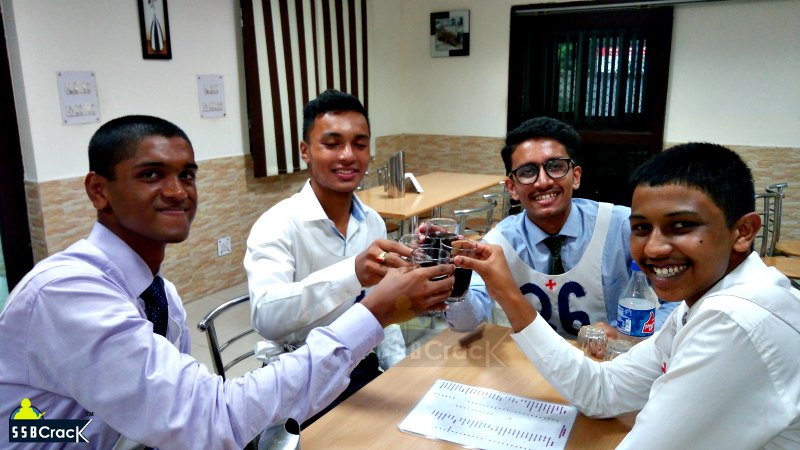
We were made to sit in a hall and the series of those anxious pre-results moments began. Then our psychologist came in with a file to declare the results. The moment Chest No 35 was announced in the third time, I just lost it there! We were supposed to stand up and say out our UPSC roll no and our name. I was so choked up with emotions that I somehow found my voice to say out my roll no, but said it wrong! As I said I had just lost it! I broke down saying my name and… I just couldn’t stop crying. I WAS ON CLOUD NINE. All those difficult months after my initial rejection, all those thoughts of self-doubt that I had earlier, everything vanished at that very moment! My hard work had earned me the fruit and the “+” sign chest no which every defence aspirant dreams of getting, initially. I said to myself that,” This is just the beginning. YOU ARE AT THE BASE CAMP. THE CLIMB IS UP AHEAD.”Recommendation after rejection- The success tastes very sweet! The whole feeling was surreal. Absolutely.
All in all, 7 of us made the cut. 5 freshers, the Indian Naval Academy cadet, and me the only repeater. A new band of brothers was formed comprising of Rithesh, Dinesh, Jagmohan, Nitish, Kartikey(bhalu!), Dev, me and also one of my best friends- Ravinder, who got recommended from 34 SSB. We enjoyed our time thoroughly during the medicals! Went places watched movies and had a lot of fun! After the medical, 3 of us including me were found to be unfit. I appealed at Base Hospital, Delhi Cantt and was declared fit! Hope Kartikey and Nitish also make it through the appeal board and every one of us makes the merit list!
For all the future SSB attendees, a piece of advice. Be genuine, be natural, be raw. Don’t present a different-you at the SSB. And don’t come under stress if one task/activity doesn’t go well. What I learned from my experience is that they are looking for your bouncing back ability. How you perform the next day/task after not doing well the previous day/task. That bouncing back ability is required instead of sitting morose and thinking again and again about something which didn’t go well.
Good Luck!
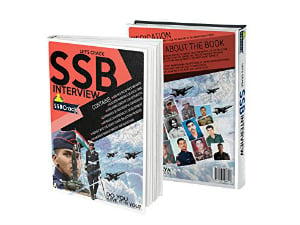
To crack SSB and AFSB Interview get “Let’s Crack SSB Interview” Book from Flipkart. Trusted by thousands of defence aspirants
Also Download Helpful eBooks:
The Indian Military Academy (IMA) in Dehradun and the Officers Training Academy (OTA) with its branches in Chennai and Gaya are prestigious institutions dedicated to shaping the future officers of the Indian Armed Forces. Despite sharing the common goal of nurturing Gentleman and Lady Cadets, notable distinctions exist in their commissioning processes, training duration, and eligibility criteria, reflecting the unique pathways they offer to military service.
The most fundamental difference lies in the type of commission the cadets receive upon graduation. The IMA primarily trains cadets for a Permanent Commission in the Indian Army, promising a longer career span, with the possibility of serving up to 30 years. In contrast, the OTA, Chennai, is known for training officers for Short Service Commission, typically allowing for a service duration of 10 to 14 years, with an option to extend. However, OTA Gaya deviates from this pattern by also offering Permanent Commission but under specific entry schemes like the 10+2 TES (Technical Entry Scheme).
Eligibility criteria and entry schemes offer another layer of differentiation. IMA caters exclusively to male candidates, requiring a graduate degree for most entry schemes like the Direct Entry (DE), with age limits varying between 19 to 24 years. The training duration here is pegged at one and a half years for DE candidates, with variations for other entries like UES, TGC, and AEC, catering to engineering graduates and postgraduates in specified streams.
Conversely, OTA provides a platform for both male and female candidates, with OTA Chennai being prominent for training all recommended women candidates. The training duration at OTA Chennai is uniform across entries at 49 weeks. OTA Gaya, catering to male candidates through the 10+2 TES entry, stands out with a 5-year training duration, integrating 1 year at OTA and 4 years at Cadet Training Wings (CTWs).
IMA demands a higher academic threshold for its aspirants, necessitating a graduate degree for Direct Entry, and includes a more rigorous selection process with three papers (English, Mathematics, and General Knowledge) in the Combined Defence Services Examination (CDSE) conducted by UPSC. OTA selection for SSC (Short Service Commission) involves only two papers (General Knowledge and English), reflecting a slightly more accessible pathway for those aiming for a shorter service tenure or specific roles within the Army.
While salary scales do not vary significantly between officers commissioned from IMA and OTA, the path to higher ranks and promotions does. Traditionally, preference for promotions follows the order of NDA, IMA, and OTA, although exceptions may occur based on merit and vacancies.
Both IMA and OTA play critical roles in the defense ecosystem of India, offering tailored pathways to military service. Whether through the pursuit of a Permanent Commission with a longer service tenure at IMA or embracing the flexibility and diverse entry schemes of OTA for a Short Service or Permanent Commission, each academy caters to the distinct aspirations and career trajectories of its cadets. The choice between IMA and OTA ultimately hinges on individual career goals, educational background, and personal commitments, with each path offering its unique set of challenges and rewards in service to the nation.
Group discussion is a process where the candidates get an opportunity to formally exchange their opinions and ideas on subjects and issues of common interest and controversial nature. Group discussion is an excellent way to display your knowledge in current trends and matters of the globe, how well informed you are about the things happening around you, and most of all, to examine your communication skills. The goal of this discussion is to help the candidates to know each other. Therefore, it provides them with a platform to explore each other and make an impression on one another. It goes without saying that you need to be prepared beforehand, with a good hold on a broad array of topics.
Fundamentally, three personality traits are assessed through group discussions, namely, communication abilities, interpersonal skills, and knowledge of the subject. It is a means to ascertain the analytical skills of the candidates. Hence, content as well as the structure of one’s talk matter.
Skills judged in Group Discussions:
Current Affairs questions will be from last 5-7 months (for AFCAT, NDA, CDS, TA)
Tips to nail Group Discussions:
As mentioned earlier, initiating GD is an advantage. Closing it too adds brownie points. If you can grab the opportunity to end it, use the chance or if no conclusion was derived, try concluding it.
Follow these simple points to ace your group discussions!
To crack SSB and AFSB Interview get “Let’s Crack SSB Interview” Book from Flipkart. Trusted by thousands of defence aspirants
Also Download Helpful eBooks:
Indian army official website www.joinindianarmy.nic.in has released the SSB dates for the course commencing in April 2018 . Candidates who have applied for NCC 43 special entry can check their email or they can directly go to army website in their login id and can find their allotted venue.
For SSB dates ,as this time army has made the application for NCC Special entry online so the army has provided various date slots starting from Nov to Dec. One has to select date from given dates and care should be taken while selecting the dates as no date of change will be permissible after selection. Try to select the dates as soon as possible otherwise it will be selected automatically.
STEPS TO SELECT THE DATES:
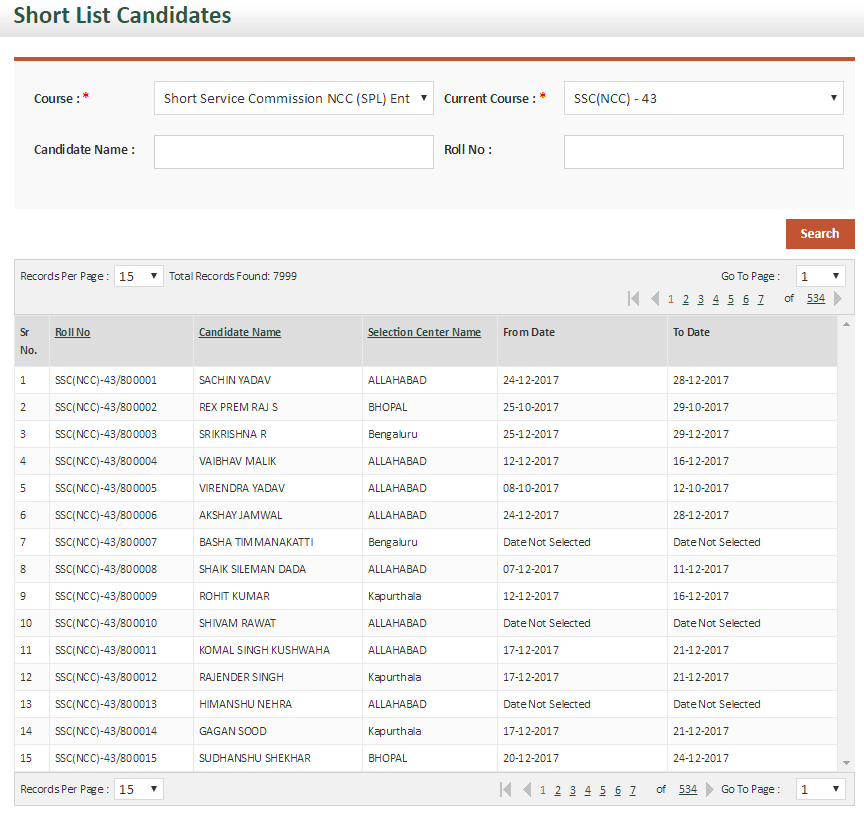
STEPS TO SELECT THE DATES:
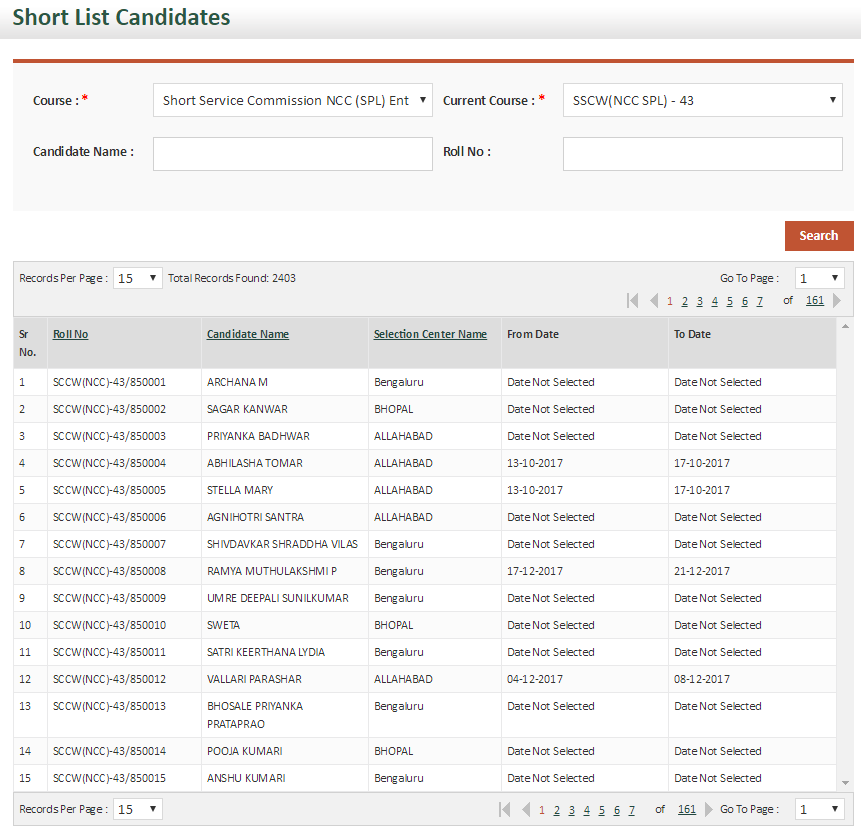
After date selection you will receive SSB CALL-UP LETTER in your mail id , take print out of the same and report to Centre.
ALL THE BEST.
To crack SSB and AFSB Interview get “Let’s Crack SSB Interview” Book from Amazon. Trusted by thousands of defence aspirants
Also Download Helpful eBooks:
To crack SSB and AFSB Interview get “Let’s Crack SSB Interview” Book from Flipkart. Trusted by thousands of defence aspirants
Also Download Helpful eBooks:
The personal interview is always related to the personal topics of the candidates. But in direct entries, where the engineers are called for the interview, sometimes, technical questions related to the stream, are also asked by the IO to check the theoretical knowledge of the candidate. These are not too tough and deep as it is just to check the basic knowledge of the candidates. For electrical engineers, here are 20 questions which are asked by the IO.
Ans – AC devices and systems are easy to maintain, the plant cost for AC transmission is lower than that of DC. Along with that, the AC Is release through the electricity sources which is directly used by AC devices rather than converting to the DC. It is easy to sort out any last fault in AC systems.
Ans – Sir in the generator the coil remains stationary and armature rotates, while in an alternator, the armature remains stationary and the coil rotates.
Ans – Sir, Majorly there are two types of conductor 1) Intrinsic (Pure) 2) extrinsic (Doped). The extrinsic are further classified into n-type and p-type semiconductors.
Ans – Sir, in Analog signals, the information is converted into electric pulses of varying amplitude. While in Digital, the signals are converted into binary form (0 and 1) where each pulse denote 2 amplitudes.
Ans – Sir, a rectifier is a device that converts AC into DC. There are two types of rectifiers i.e. half wave and full wave rectifiers.
Ans – The forward voltage at which the current through the PN junction starts increasing rapidly is called knee voltage.
Ans – Sir, it is a circuit used to charge all capacitors of the generator in parallel and discharging them in series. And is used when voltage required for testing is more than the available.
Ans – When a current carrying conductor is placed in a magnetic field (Coil), it causes twisting movement called torque which leads to the rotation of the armature.
Ans – Shunt motor, Service Motor, and Compound Motor.
Ans – Sir, if the voltage difference between the phases is large, in it will cause damage to the lamp, if the difference is small, then it depends on the type of lamp whether it will glow or not. If the voltage is same, then the lamp will glow.
Ans – Sir, the AC is built to remove heat from the room or a cabin, so it means that it can remove 1000 k.cal of heat in 1 hour.
Ans – Sir, there is some common difference between them. A fuse has smaller capacity then circuit breaker. When the circuit is broken, a fuse has to be replaced but a circuit breaker not required to replace.
Ans – Sir, these are Hysteresis loss and eddy current loss.
Ans – Sir, it is used to storing electricity and provide it when the main electricity source is out of electricity. The basic difference between them is the capacity. The capacity or power backup of invertor is much more than that of UPS.
Current Affairs questions will be from last 5-7 months (for AFCAT, NDA, CDS, TA)
Ans – Sir, DC series motors are used in trains.
Ans – Sir, the step-up transformer increases the voltage while step-down reduces the voltage of the electricity. Another difference is that step up transformer has more secondary coils and step down has more primary coils in it.
Ans – There are 2 types of DC generators, separately excited and self-excited generators.
Ans – Sir, a dynamo convert’s mechanical energy into electrical energy while a motor convert’s electrical energy into mechanical energy.
Ans – Sir, Shunt is a device that provides electricity to pass through another way having low resistance value.
Ans – Sir, the tube lights are built to operate in AC circuits and have low resistance. So when DC will be supplied, due to low resistance and high current if will damage.
Conclusion – The above question will give hints to those candidates, who have completed their engineering in electrical branch and are aiming to attend SSB. The IO is not too proficient in the engineering field but has some precise basic knowledge of everything. So, the candidates need to have accurate and clarified basic knowledge of their stream, which is usually asked in the personal interview in SSB.
To crack SSB and AFSB Interview get “Let’s Crack SSB Interview” Book from Flipkart. Trusted by thousands of defence aspirants
Also Download Helpful eBooks:
The thought of not being able to answer an interview question is a scary one for many of us. It happens more often than we might think. Sometimes, we simply don’t know the answer and the silence can seem excruciating. In other cases, we may know, but our brains freeze. Whatever the case is, being in that moment, we wish the floor would open up and swallow us whole.
Being prepared for not being able to respond can help mitigate some of the anxiety, and help you make the most out of a difficult situation. Keep these tips in mind the next time you’re strapped for an answer.
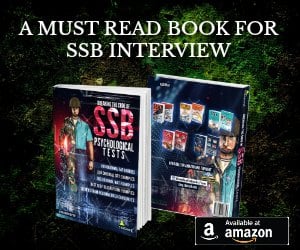
Take the interview easy. It’s not much of a task. You can easily pull it off if you have the right attitude to deal with it. Don’t prolong moments and make it awkward for both the IO and yourself. Practice interviewing at home with family and friends, that will boost your confidence.
Indian Air Force offers opportunities for UNMARRIED MALE INDIAN CITIZENS from the State of Arunachal Pradesh to join as Airmen. The Recruitment Test for Group „X‟ (Technical) Trades and Group „Y‟ (Non-Technical) Trades {Except Automobile Technician, GTI, IAF(P), IAF(S), Med Asst and Musician Trades} will be held at Rajiv Gandhi Government Polytechnic, Itanagar, Arunachal Pradesh as per the Selection Programme given below.
Examination/Rally venue will be open from 0600h-1000h and the examinations will be conducted as per the details given below. Candidates from the State of Arunachal Pradesh fulfilling the domicile requirements and eligibility conditions and reporting up to 10 AM on 04 November 2017 at the Rally Venue will only be permitted to appear in the Recruitment Test.
Date of Birth Block. Candidates born between 13 January 1998 and 27 June 2001 (both days inclusive) are eligible to appear in the Recruitment Rally.
Educational Qualification.
(a) Group „X‟ (Technical).
(i) Passed Intermediate / 10+2 / Equivalent examination with Mathematics, Physics and English with minimum 50% marks in aggregate and 50% marks in English. OR Passed Three years Diploma Course in the following streams from a Government recognized Polytechnic Institute with 50% marks in aggregate, and 50% marks in English in Diploma or in Intermediate/Matriculation, if English is not a subject in Diploma Course.
(aa) Mechanical Stream:- Mechanical Engineering, Mechanical Engineering (Design & Drafting), Mechanical Engineering (Foundry Technology), Mechanical Engineering (Machine Tool Maintenance and repairs), Mechanical Engineering (Refrigeration & Air Conditioning), Mechanical Engineering (Tool & Die), Mechanical Engineering (Production), Mechanical Engineering (Fabrication Tech), Mechanical Engineering (CAD/CAM Design & Robotics), Mechanical (Advance Manufacturing Technology), Manufacturing Engineering/Technology, Production Engineering, Automobile Engineering, Advanced Diploma in Refrigeration & Air Conditioning, Mechatronics.
(ab) Electrical/Electronics/IT Stream:- Electronics, Applied Electronics, Electronics & Communication Engineering, Electronics (Microprocessor), Electronics and Avionics, Electronics (Fibre Optics), Electronics (Robotics), Electronics and Instrumentation Engineering, Electronics & Telecommunication Engineering, Industrial Electronics, Electrical Engineering, Electrical & Electronics Engineering, Instrumentation Engineering/Technology, Instrumentation and Control Engineering, Telecommunication Engineering/Technology, Information Technology, Computer Engineering, Computer Science & Engineering, Computer Science & Technology.
Group „Y‟ (Non-Technical) Trades {Except Automobile Technician, GTI, IAF(P), IAF(S), Med Asst and Musician Trades}. Candidate should have passed Intermediate / 10+2 / Equivalent Examination in any stream/subjects approved by Central / State Education Boards with minimum 50% marks in aggregate and 50% marks in English.
Written Test. Written Test will be objective type and question paper will be bilingual (English & Hindi) except for English paper. Detailed procedure shall be explained before conduct of the examination. Written Test and Duration of the Test will be as follows:-
(a) Group „X‟ (Technical) Trades. Duration of the written test will be 60 minutes and will comprise of English, Physics and Mathematics as per 10+2 CBSE syllabus.
(b) Group „Y‟ (Non-Technical) Trades. Duration of the written test will be 45 minutes and will comprise of English as per 10+2 CBSE syllabus and Reasoning & General Awareness (RAGA). CANDIDATES ARE TO QUALIFY IN EACH PAPER SEPARATELY. Results of the written test will be declared on the same day.
[pdfviewer]https://www.ssbcrack.com/wp-content/uploads/2017/09/Itanagar_Rally.pdf[/pdfviewer]
To crack SSB and AFSB Interview get “Let’s Crack SSB Interview” Book from Flipkart. Trusted by thousands of defence aspirants
Also Download Helpful eBooks:
For the introduction, I Abhilasha Barak, come from Panchkula, Haryana. I have completed B.Tech in ECE from Delhi Technological University. I was currently working as a Business Technology Analyst for Deloitte, USI.
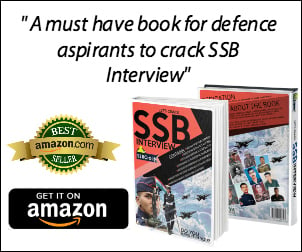
Coming from an army background, I changed around 8 schools over a course of 12 years, but for the highlights I completed my 10th from The Lawrence School, Sanawar and 12th from Tagore International School, Vasant Vihar.
To summarize all my attempts:
| 1) | AFSB DEHRADUN | Jan-16 | RECOMMENDED |
| 2) | AFSB DEHRADUN | Aug-16 | SCREENED OUT |
| 3) | SSB BHOPAL | Nov-16 | RECOMMENDED |
| 4) | SSB BANGALORE | May-17 | RECOMMENDED |
| 5) | AFSB GANDHINAGAR | Jul-17 | RECOMMENDED |
Attempt 1 (DEHRADUN)

My first attempt or least to say the ideal attempt of my life. To compare with all other SSBs I would call this the most flawless performance I could ever give. I literally put my heart and soul into this SSB. The amount of enthusiasm I had was unmatched. I was in my final year of college. I sat home for a month to prepare, my college was on the verge of detaining me but nothing else mattered other than this SSB.
So to begin with, I reached the Railway station at exact 6:45am and started looking for directions in order to give my attendance. I had in mind there might just be somebody we have to report to and thereafter we will be guided to board the buses accordingly. I went up to the officer in charge, who was very preoccupied with everything, to enquire the same but he told me that I was late and I should head back already. It took me a while to understand what he meant but instead of feeling helpless I saw others directly boarding the bus so I went along and took my seat without paying heed.
We reached the campus, got documents verified, went for Stage-1 testing, solved booklets 52 and 53 (simplest ones out of all) , PPDT- old man with bandage on eyes along with doctor, narration was great and GD was decent, thereby I was screened in. Same evening we had Psych testing. Next day, we had CPSS and PABT (the two best test you can experience, sitting in a simulated cockpit makes you feel like a pilot already) cleared both the tests. In GTO (lecturette and snake race didn’t happen), and in IO completed all the obstacles leaving out the hanging tyre.

My interview was last of all and the interviewer was from north east, a very humble man I wasn’t grilled on anything, these are very learned people he even recognized the tie I was wearing of my school. Overall it was more like an easy flow of views. Thereafter the next day after conference my chest number 13 was first to be called and thereafter 11 other chest numbers were called. My afcat score was 177 and I was merit out for ground. For flying, I was medically unfit for flying for falling short of 2cm in standing height than what is required.
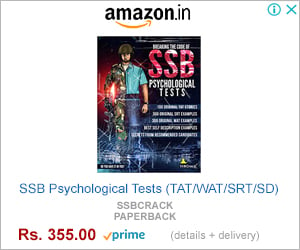
Attempt 2 (DEHRADUN)
This time my Afcat score was 192 and my Ekt was also clear, so I had very high chances of clearing the merit but destiny had it the other way. On the day of reporting, my level of josh was zero. I had been merit out recently after putting out the best performance of my life. That time I developed immense respect for the repeaters out there, because I realized the amount of dedication and courage it takes for anybody to come back out there and do the same thing over and over again.
I don’t even call them repeaters anymore, rather I say the ‘experienced lot’. I messed up my OIR here, when we were asked to write a letter as the answer, I wrote the whole word! Read the instructions very carefully even if you are doing it for the 2nd or 8th time. In PPDT there were two clear characters, one man sitting with newspaper and a woman standing beside him. I made the man the main character and spoke on how he read about smart class technology in the paper and incorporated the same in his school thereafter. I was the first one up for narration which went very well but in GD being the one on one of the corners and that too in a repeaters’ group the big lesson here was to put in double the efforts to make it through.
The group I was in was really aggressive but somewhere I couldn’t be like them, so ended up speaking hardly for 2 times. I was screened out. This was another takeaway for me. So two downfalls back to back. But then there was a third one to come. I didn’t clear my AFCAT for which I had to travel to Hyderabad from Chandigarh. So anyway, after my 2nd attempt I decided to take up my placement offer instead of sitting back at home and preparing. It was the right decision. So, I went for the job in Gurgaon I learnt many things, and constantly communicating with people kept me energized. For the record here, ~80 girls were screened in out of 150, which makes a great ratio.
ATTEMPT 3 (BHOPAL)
During this attempt, the good thing about army was for them to call you a day prior to the actual testing, which they always do. So, even If you aren’t in best of your form you talk to people, get to know them and it naturally fills in the excitement. Around 120 people showed up, 63 were screened in and 21 recommended. In Stage 1, OIR was similar to the one that came in Doon. PPDT had a picture of a doctor along with two ladies, so majorly everyone’s’ story revolved around free check-ups for pregnant women. There was one girl who made something related to drug abuse, we both were screened in but I specifically want to mention her here because in all honesty, I haven’t come across a person like her in any of the SSBs or in general in life, the way she is or the way she talks I have sheer admiration for her and in my opinion I haven’t seen a more deserving person than her in this regard. I

n Psych, there were TAT images like a man and a woman discussing, people climbing a peak etc and I completed 52 SRTs. In GTO, my CT was related to diffusing a bomb within circular boundaries. In Individual obstacles, I completed the difficult ones like Double Ditch, Tiger Leap and Tarzan Swing very smoothly before I went onto the easy ones. Not being overconfident but I know my IO was better than any other girl out there. I always start with Commando Walk in IO because if my legs get tired they would shake the whole thing up. Similar way in AFSB I start with vertical rope first and do the rest successfully. Interview was taken by the president straight after GTO and focused on interpersonal questions. I wasn’t able to answer GK questions like always so they were repeated during conference. I was AIR 12 out of 46 girls ans the seats were 05 for women. My written score was 90 and SSB score was 101.

ATTEMPT 4 (BANGALORE)
This center is beautiful with a large number of mango trees all over the campus. I’ll keep this one short and majorly mention the areas of improvement. In OIR tests, Booklet numbers 100 and 101 were given. 100 is full of alphabet series with 75 questions to be done in 30 min. I could only finish 60 with surety. About 28 girls were screened in out of 60 and 17 were recommended. In psych, the pictures were really interesting like young people riding horses, people in a court room. I still have a list of all the pictures I have come across in all the SSBs. WAT, I always complete 60 words and in SRT, I completed 43 in number. In GTO, I was really good at PGT, HGT and in CT I received a plank, a log and a metal triangle as helping materials. The solution was kind of tricky but I succeeded. We weren’t allowed to do the 3 difficult individual obstacles here as directed by the testing officer. I was disheartened as this was one thing I was really good at and have always outshined in. Lecturette was on ‘Unity in Diversity’ but I messed up and said my topic is ‘University in diversity’. One of the GD topic was, “Why are women finding it easy to move out of marriage?.” My interview lasted hardly 25 minutes in which I could not answer basic GK questions on Chabahar Port and some technical questions related to Radio Spectrum. Conference was short and quick. And made it to the merit at AIR 9 with 95 marks in written and 103 marks in SSB.
ATTEMPT 5 (GANDHINAGAR)
This center too small in size. It is 45 min away from the Railway Station. IAF is coming up with new location for the center in 2 years in Sec 25 Gandhinagar where 2 batches will be able to have SSBs simultaneously as told by the authorities. To start with OIR tests, we received booklet no 74 and 75 which were pretty easy and had all kinds of questions of CLASS A/B, jumbled words etc. In, PPDT I had never come across a more abstract picture. Nothing was clear so majorly people perceived it as trees/ buildings and made stories on industrialization and sustainable development. My story was very odd it was of a teacher who practically tries to demonstrate and equip students with knowledge about environmental science by taking them for outings. I was the first one up for narration in my group (just like the time when I was in Dehradun where I got screened out) and I fumbled like 3 times here. Usually, my narration has always been loud and clear so I knew I had messed it up and I had to prevent history from repeating itself, so ensured that i excelled in GD, there was no way out. As the GD started, I was on fire like literally I had not spoken as much in any other GD as I did here. There is one thing about screening, its risky you never know what you do out there is right or wrong. After screening results, got enough 1-2 hours break before Psych started. We had same old words, so one must practice as many as he/she can but be diverse in your responses and with every sentence one must think what OLQ is it portraying. For eg. If the word is Hide
Negative- Hidden order of corruption is increasing.
Neutral-Children play hide and seek.
Positive-Hidden talents are explored.
And for TAT what I always try to do in my stories is help people, how, why and what the picture only tells you. I completed around 54 SRTs here.
Also people keep talking about making a positive story but nobody out there defines what this positive thing is. After talking to several people, I’ll explain my understanding via another example-
Picture- Aerial view of man getting down from a car and people coming and surrounding/gathering around.
Negative- People are stopping him from running after being involved in an accident.
Neutral- Volunteers spreading awareness about car rationing.
Positive- People have come to welcome him as chief guest after his successful stint at launching the ISRO geo satellite for the nation
That’s for Psych.
The next day was free for our group. We took ample rest and went out to explore the city after lunch. The next day was GTO. GD topics were 1) Crime against women is on rise. Why? 2) What is the major cause of child abuse? My lecturette topic was on Cottage Industry. I didn’t hear the first bell which is to start summarizing your topic so ended up speaking for 3 min 30 sec (Don’t do that! You are eating the time of the next person). My command task was again to diffuse a bomb where the bounded area was in rectangular shape instead of a circle and the bomb was at one end of it and GTO told me the starting line and finishing line were same (i.e you have to come exit from where you started one you pick the bomb, you can’t exit from the other end).
The next day was Interview. There was no rapid fire. The officer was very expressive. He probably had more to tell than to ask. It went on for 50 minutes. It was one good interview. The conference went on like a 6-7 min interview. I came out and thought I was somewhere on borderline here but then they did this with all the people who got recommended. You can never decode what goes on in their minds. 3 of us were recommended who were all repeaters and 5 were previously recommended candidates who didn’t make it. IAF shows no mercy whether it’s your last attempt or first. Currently awaiting the merit for this.
In the end, kudos to all the people who keep coming back with all the josh and grit to face SSBs! Even if you don’t make it, you are my true inspiration.
Also Download Helpful eBooks:
Indian army is going to conduct the open rally bharti recruitment for various soldier trades in upper Assam Mariani Jorhat starting from 17 Nov 2017. Interested candidates can register themselves online from 18 Sep 2017. Candidates who are interested in Indian army rally recruitment in upper Assam can read more details below.
Category
[pdfviewer]https://www.ssbcrack.com/wp-content/uploads/2017/09/Mariani_Rect_Rally_-_17_to_23_Nov_2017.pdf[/pdfviewer]